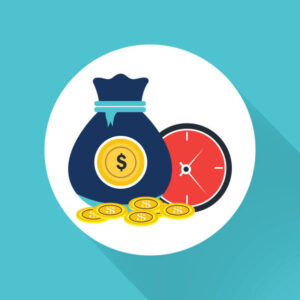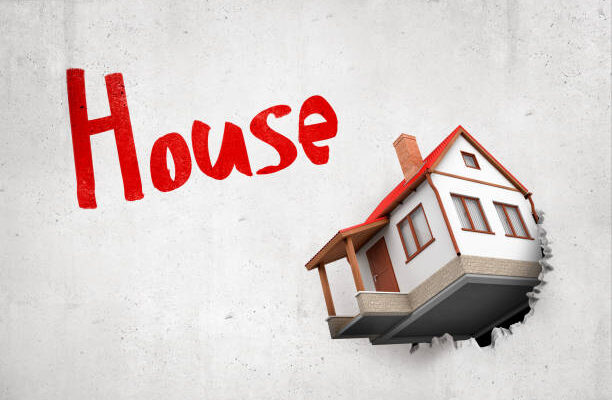Homeownership is often considered a cornerstone of the American dream, symbolizing stability, financial success, and personal achievement. While there are undeniable benefits to owning a home, it is essential to critically examine the potential disadvantages that may accompany this significant investment. In this article, we will explore and shed light on some of the drawbacks of homeownership, offering a balanced perspective on the complexities of this seemingly idyllic pursuit.
Financial Strain and Upfront Costs
 (Photo from iStock)
(Photo from iStock)
One of the primary disadvantages of homeownership is the substantial financial commitment required at the outset. Purchasing a home involves a plethora of upfront costs, including the down payment, closing costs, and various fees associated with mortgage applications and property inspections. For many individuals and families, accumulating the necessary funds to cover these expenses can be a daunting task, potentially leading to financial strain.
Moreover, unexpected maintenance and repair costs can add to the financial burden of homeownership. Unlike renting, where landlords are responsible for repairs and maintenance, homeowners bear the full cost of any necessary fixes. From leaky roofs to malfunctioning appliances, these unforeseen expenses can quickly deplete savings and strain budgets.
Limited Flexibility and Mobility
Homeownership often comes with a reduced level of flexibility and mobility compared to renting. While owning a home provides a sense of permanence, it can be a hindrance for individuals who prioritize career mobility or have a lifestyle that requires frequent relocation. Selling a property can be a time-consuming and complex process, and the real estate market’s unpredictability may lead to delays and financial losses.
For those who thrive on change or job opportunities that demand relocation, renting may offer a more suitable solution. Renters can easily move without the hassle of selling a property, providing the flexibility to adapt to changing circumstances.
Market Fluctuations and Property Value
The real estate market is known for its cyclical nature, with property values subject to fluctuations influenced by economic conditions, interest rates, and regional factors. Homeowners may experience the downside of these market fluctuations, potentially facing a decline in property value. In such cases, homeowners may find themselves in a situation where their home is worth less than the outstanding mortgage, resulting in negative equity.
Negative equity can limit financial options and flexibility, making it challenging to sell the property or refinance the mortgage. This disadvantage underscores the importance of understanding the local real estate market and being prepared for potential downturns in property values.
Property Taxes and Ongoing Expenses
Homeownership is accompanied by ongoing expenses, with property taxes being a significant financial obligation. Property taxes are levied by local governments based on the assessed value of the home and fund various community services such as schools, public safety, and infrastructure. These taxes can fluctuate over time, potentially leading to increased financial strain for homeowners.
In addition to property taxes, homeowners must contend with other ongoing expenses such as homeowners’ association (HOA) fees, utility bills, and insurance premiums. These costs, when combined, contribute to the overall financial responsibility of maintaining and preserving the property.
Market Timing and Interest Rates
 (Photo from iStock)
(Photo from iStock)
The timing of entering the housing market can significantly impact a homeowner’s financial well-being. Purchasing a home during a period of high-interest rates can lead to increased mortgage payments, impacting overall affordability. Moreover, market conditions may influence the availability of financing options, affecting the interest rates and terms offered to prospective homebuyers.
In a rising interest rate environment, homeowners with adjustable-rate mortgages may face higher monthly payments, potentially straining their financial resources. Understanding market trends and interest rate forecasts is crucial for prospective homebuyers to make informed decisions and mitigate the impact of external economic factors.
Maintenance and Responsibilities
Owning a home comes with a set of responsibilities that extend beyond the initial purchase. Maintenance tasks, such as lawn care, roof repairs, and plumbing issues, become the homeowner’s responsibility. These tasks not only require time and effort but also entail additional costs, especially if professional services are needed.
For individuals with busy lifestyles or those who lack the skills to perform certain maintenance tasks, homeownership can be a source of stress. In contrast, renters often benefit from the convenience of having landlords or property management companies handle maintenance and repairs.
Mortgage Debt and Long-Term Commitment
One of the most significant drawbacks of homeownership is the long-term commitment to mortgage debt. Mortgages typically span several decades, and committing to such a substantial financial obligation requires careful consideration. Homeowners may find themselves tied to mortgage payments for a significant portion of their lives, limiting financial flexibility and the ability to allocate resources to other goals and investments.
Additionally, unforeseen life events such as job loss, health issues, or changes in family circumstances can make it challenging to meet mortgage obligations. This long-term financial commitment underscores the importance of thorough financial planning and consideration of potential future scenarios before embarking on homeownership.
Conclusion
While homeownership remains a revered and sought-after goal for many. It is essential to recognize and understand the potential disadvantages associated with this significant financial undertaking. From the upfront costs and ongoing expenses to market fluctuations. And long-term commitments, homeownership presents challenges. That may not align with everyone’s preferences or circumstances.
Ultimately, the decision to pursue homeownership should be based on a comprehensive evaluation of individual priorities. Financial capabilities, and lifestyle preferences. Renting provides a level of flexibility and reduced financial responsibility. Making it a viable alternative for those who prioritize mobility and financial versatility.
By acknowledging and addressing the potential drawbacks of homeownership. Individuals can make informed decisions that align with their unique circumstances and aspirations. Balancing the dream of homeownership with a realistic understanding of its challenges is crucial. For achieving a sustainable and fulfilling housing experience.
In conclusion, while homeownership brings stability and a sense of accomplishment, potential financial strains, market uncertainties. And long-term commitments highlight the need for careful consideration. Balancing the allure of homeownership with its inherent challenges. Ensures a well-informed and sustainable housing journey.




